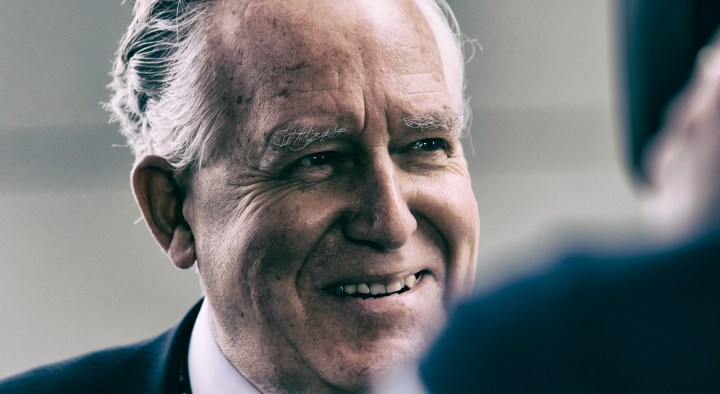OP-ED
Standing up for justice using Parliamentary Privilege

The right in Britain for parliamentarians to speak out under privilege – that is to say, without being vulnerable to litigation – is both precious and ancient. But it is a right never to be abused, to be deployed only sparingly and when absolutely necessary.
In the House of Lords last Thursday, I said under parliamentary privilege:
“Having been contacted by someone intimately involved in the case of a powerful businessman using Non-Disclosure Agreements and substantial payments to conceal the truth about serious and repeated sexual harassment, racist abuse and bullying, which is compulsively continuing, I feel it is my duty under parliamentary privilege to name Sir Philip Green as the individual in question. Given that the media have been subject to an injunction preventing publication of the full details of a story which is clearly in the public interest.”
In the ensuring uproar and front-page headline coverage there were accusations I was undermining the judiciary and abusing parliamentary privilege, when I was doing neither.
The right in Britain for parliamentarians to speak out under privilege – that is to say, without being vulnerable to litigation – is both precious and ancient. It is based on parliament’s absolute sovereignty as a defence of liberty and democracy.
But it is therefore a right never to be abused, to be deployed only sparingly and when absolutely necessary. I took the view this was just such a case involving media freedom and citizens rights, with the Daily Telegraph being blocked by a gagging order from publishing in the public interest.
Some lawyers vehemently disagreed, arguing I had, by revealing Sir Philip’s name, undermined the Appeal Court which in a temporary judgment had imposed an injunction against the Telegraph brought by Green. They are entitled to their opinion and I have no argument with the judiciary. It has its job to do and we parliamentarians have ours.
During nearly 30 years’ membership of the British Parliament – mostly as an MP, latterly a Lord – I have deployed parliamentary privilege only three times, the Green case the most recent.
The first time was as a Minister for Africa in 2000 when I had been angry and exasperated at the wealth of intelligence reports I was receiving of private planes flying in significant arms supplies to African conflict zones – Angola, Sierra Leone, Democratic Republic of Congo – and flying out “blood diamonds” received in payment. This murderous traffic was fuelling war and destroying communities.
So, after months of argument with UK intelligence and Foreign Office officials (because this had never been done before), on 18 January 2000 I said in the House of Commons:
“It is vital that private individuals and companies engaged in breaking the law by deliberately breaching UN sanctions on Unita are stopped. I can inform the House that we are referring to the UN sanctions committee today, and its expert panels, the details of three such individuals, which we hope they will be able to follow up. It is widely known in the region that Jacques ‘Kiki’ Lemaire flies in diesel fuel, landing on Unita airstrips in a Boeing 707 or Caravelle aircraft. Tony Teixeira has been supplying diesel fuel to Unita, again flying it in by plane. Victor Bout, who runs an air transport company, has flown in arms to Unita. It is also believed that Bout owns or charters an Ilyushin 76 aircraft, which was impounded in Zambia en route to Angola last year.”
After shouting and screaming at me, most of them were put out of business. Victor Bout – whom I dubbed “the merchant of death” – was eventually arrested and is currently serving a long prison sentence.
The second time was when I recently spoke in the Lords successively exposing Bell Pottinger for its racist, fake news campaign on behalf of the Zuptas. That was in September 2017, followed up by a series of speeches detailing the enormity of state capture under former President Zuma and the complicity of global corporates in it.
Again I spoke under parliamentary privilege so none of the individuals or corporates I named had any redress against me; the only dispute with what I said came from Hogan Lovells who denied whitewashing corruption and money laundering in SARS – but then they seem to be the only ones denying that.
These three cases have all involved exposing injustice. Surely that is what exercising parliamentary privilege is all about – or what is the point of having it? DM
Lord Peter Hain’s recent biography Mandela His Essential Life is published by Jonathan Ball.




















 Become an Insider
Become an Insider